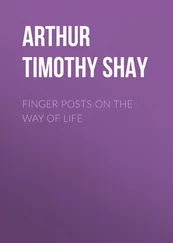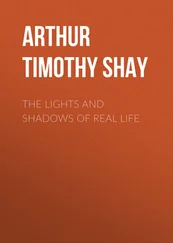Timothy Arthur - Married Life; Its Shadows and Sunshine
Здесь есть возможность читать онлайн «Timothy Arthur - Married Life; Its Shadows and Sunshine» — ознакомительный отрывок электронной книги совершенно бесплатно, а после прочтения отрывка купить полную версию. В некоторых случаях можно слушать аудио, скачать через торрент в формате fb2 и присутствует краткое содержание. Жанр: foreign_sf, literature_19, foreign_antique, foreign_prose, на английском языке. Описание произведения, (предисловие) а так же отзывы посетителей доступны на портале библиотеки ЛибКат.
- Название:Married Life; Its Shadows and Sunshine
- Автор:
- Жанр:
- Год:неизвестен
- ISBN:нет данных
- Рейтинг книги:5 / 5. Голосов: 1
-
Избранное:Добавить в избранное
- Отзывы:
-
Ваша оценка:
- 100
- 1
- 2
- 3
- 4
- 5
Married Life; Its Shadows and Sunshine: краткое содержание, описание и аннотация
Предлагаем к чтению аннотацию, описание, краткое содержание или предисловие (зависит от того, что написал сам автор книги «Married Life; Its Shadows and Sunshine»). Если вы не нашли необходимую информацию о книге — напишите в комментариях, мы постараемся отыскать её.
Married Life; Its Shadows and Sunshine — читать онлайн ознакомительный отрывок
Ниже представлен текст книги, разбитый по страницам. Система сохранения места последней прочитанной страницы, позволяет с удобством читать онлайн бесплатно книгу «Married Life; Its Shadows and Sunshine», без необходимости каждый раз заново искать на чём Вы остановились. Поставьте закладку, и сможете в любой момент перейти на страницу, на которой закончили чтение.
Интервал:
Закладка:
In leaving the home of her husband, Mrs. Lane had exercised no forethought. She made no estimate of consequences, and provided for no future contingencies. She was blind in her faint-heartedness, that was little less than despair. Any thing was better than to remain in a state of submission, that had become, she felt, intolerable. Leaving thus, Mrs. Lane had taken with her nothing beyond a few dollars in her purse, and it was only an accident that her purse was in her pocket. All her own clothes and those of her child, except what they had on, were left behind.
Alarmed at the threat of her husband, Mrs. Lane, a few hours after the conversation with Mrs. Edmondson, in which his views were made known to her, took her child and went away. In parting with her friend, she left upon her mind the impression that she was going home. This was very far from her intention. Her purpose was to leave New York, the city of her residence, as quickly as possible, and flee to some obscure village, where she would remain hidden from her husband. She had resided, some years before, for a short time in Philadelphia; and thither she resolved to go, and from thence reach some point in the country. On leaving the house of her friend, Mrs. Lane hurried to the river and took passage in the afternoon line for Philadelphia.
As the cars began their swift movement from Jersey City, a feeling of inexpressible sadness came over her, and she began to realize more distinctly than she had yet done, her desolate, destitute, and helpless condition. After paying her passage, she had only two dollars left in her purse; and, without money, how was she to gain friends and shelter in a strange city? To add to her unhappy feelings, her child commenced asking for her father.
"Where is papa?" she would repeat every few minutes. "I want to go to my papa."
This was continued until it ended in fretfulness and complaints at the separation it was enduring. Tears and sobs followed; and, finally, the child wept herself to sleep.
A new train of feelings was awakened by this incident. In leaving her husband, Mrs. Lane had thought only of herself. She had not once considered the effect of a separation from its father upon her child. Little Mary's heart was full of affection for the two beings whom nature prompted her to love. Her father's return from business had always been to her the happiest event of the day; and, when she sprang into his arms, her whole being would thrill with delight. Days had passed since she had seen her father, and she was pining to meet him again to lay her head upon his bosom—to feel his arms clasped tightly around her.
All this was realized by the mother, as the child lay sleeping on her arm, while the swift rolling cars bore them farther and farther away from the home she was leaving. Is it just to the child? Distinctly did this thought present itself in her mind. For a long time she mused over it, her feelings all the while growing more and more tender, until something like repentance for the step she had taken found its way into her mind—not for what she was herself suffering, but for the sake of her child. She had not thought of the effect upon little Mary, until the pain of absence showed itself in complaint.
This idea arose clearly before her—she could not push it aside; and, the more she pondered it, the more troubled did she become, from a new source. Would not the separation so deeply afflict the child as to rob her of all happiness?
While these thoughts had full possession of the mother's mind, Mary slept on and dreamed of her father, as was evident from the fact that, more than once, she murmured his name.
When night came down, its effect upon Mrs. Lane was more sadly depressing, for it brought her into a clearer realization of her unhappy condition. Where was she going? What was the uncertain future to bring forth? All was as dark as the night that had closed around her.
At length the cars reached Bristol, and it became necessary to leave them, and pass into the boat. In lifting Mary in her arms, to bear her from the cars, the child again murmured the name of her father, which so affected Mrs. Lane, that her tears gushed forth in spite of her efforts to restrain them. Letting her veil fall over her face to conceal this evidence of affliction from her fellow-passengers, she proceeded with the rest; and, in a little while, was gliding swiftly down the river. It was ten o'clock when they arrived in Philadelphia. For an hour previous to this time, the mind of the fugitive had been busy in the effort to determine what course she should take on gaining the end of her journey. But the nearer she came to its termination, the more confused did she become, and the less clearly did she see the way before her. Where should she go on reaching the city? There as no one to receive her; no one to whom she could go and claim protection, or even shelter.
This state of irresolution continued until the boat touched the wharf, and the passengers were leaving. Mary was awake again, and kept asking, every few moments, to go home.
"Yes, dear, we will go home," the mother would reply, in a tone of encouragement, while her own mind was in the greatest uncertainty and distress.
"Why don't papa come?" asked the child, as one after another moved away, and they were left standing almost alone. At this moment, an Irishman, with a whip in his hand, came up, and said—
"Want a carriage, ma'am?"
Mrs. Lane hesitated a moment or two, while she thought hurriedly, and then replied—
"Yes."
"Very well, ma'am; I'll attend to you. Where is your baggage?"
"I have only this basket with me."
"Ah! well; come along." And Mrs. Lane followed the man from the boat.
"Where shall I drive you?" he asked, after she had entered the carriage.
There was a pause, with apparent irresolution.
"I am a stranger here," said Mrs. Lane innocently. "I want to obtain pleasant accommodations for a day or two. Can you take me to a good place?"
"Faith, and I can—as good as the city will afford. Do you wish one of the tip-top places, where they charge a little fortune a week; or a good comfortable home at a reasonable price?"
"I want a comfortable, retired place, where the charges are not extravagant."
"Exactly; I understand."
And the driver closed the door, and, mounting his box, drove off. At the end of ten minutes the carriage stopped, the steps were let down, and Mrs. Lane, after descending, was shown into a small parlour, with dingy furniture. A broad, red-faced Irish woman soon appeared, at the summons of the driver.
"I've brought you a lady customer, Mrs. McGinnis, d'ye see? And you're just the one to make her at home and comfortable. She's a stranger, and wants a quiet place for a day or two."
"And, in troth, she'll find it here, as ye well say, John Murphy. Will the lady put off her bonnet? We'll have her room ready in a jiffy! Much obleeged to yees, John Murphy, for remembering us. What a darlint of a child; bless its little heart!"
"What must I pay you?" asked Mrs. Lane, hoarsely, turning to the driver.
"One dollar, ma'am," was replied.
Mrs. Lane drew forth her purse, towards which the Irishwoman glanced eagerly, and took therefrom the sum charged, and paid the man, who immediately retired. The landlady followed him out, and stood conversing with him at the door for several minutes. When she returned, she was less forward in her attentions to her guest, and somewhat inquisitive as to who she was, where she had come from, and whither she was going. All these Mrs. Lane evaded, and asked to have her room prepared as quickly as possible, as she did not feel very well, and wished to retire. The room was at length ready, and she went up with little Mary, who had again fallen to sleep. It was small, meagerly furnished, and offensive from want of cleanliness. In turning down the bed clothes, she found the sheets soiled and rumpled, showing that the linen had not been changed since being used by previous lodgers. The first thing that Mrs. Lane did, after laying her sleeping child upon the bed, was to sit down and weep bitterly. The difficulties about to invest her, as they drew nearer and nearer, became more and more apparent; and her heart sank and trembled as she looked at the unexpected forms they were assuming. But a single dollar remained in her purse; and she had an instinctive conviction that trouble with the landlady on account of money was before her. Had she been provided with the means of independence, she would have instantly called a servant, and demanded a better room, and fresh linen for her bed; but, under the circumstances, she dared not do this. She had a conviction that the Irishwoman was already aware of her poverty, and that any call for better accommodations would be met by insult. It was too late to seek for other lodgings, even if she knew where to go, and were not burdened with a sleeping child.
Читать дальшеИнтервал:
Закладка:
Похожие книги на «Married Life; Its Shadows and Sunshine»
Представляем Вашему вниманию похожие книги на «Married Life; Its Shadows and Sunshine» списком для выбора. Мы отобрали схожую по названию и смыслу литературу в надежде предоставить читателям больше вариантов отыскать новые, интересные, ещё непрочитанные произведения.
Обсуждение, отзывы о книге «Married Life; Its Shadows and Sunshine» и просто собственные мнения читателей. Оставьте ваши комментарии, напишите, что Вы думаете о произведении, его смысле или главных героях. Укажите что конкретно понравилось, а что нет, и почему Вы так считаете.












